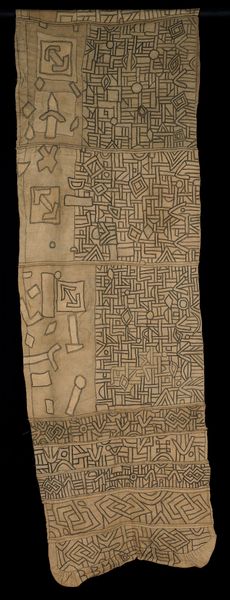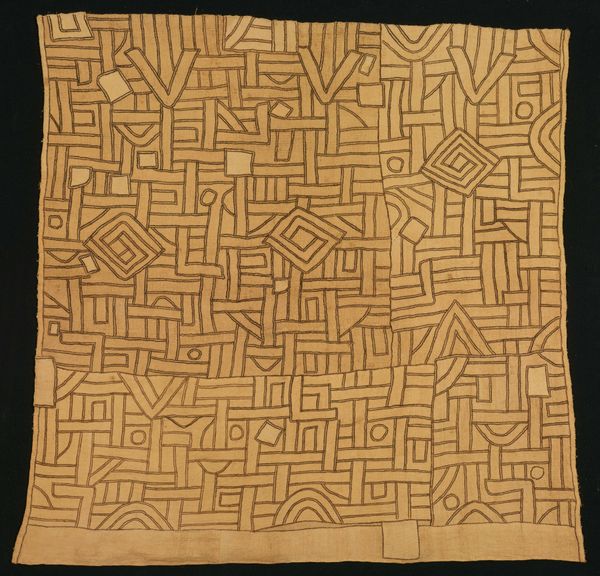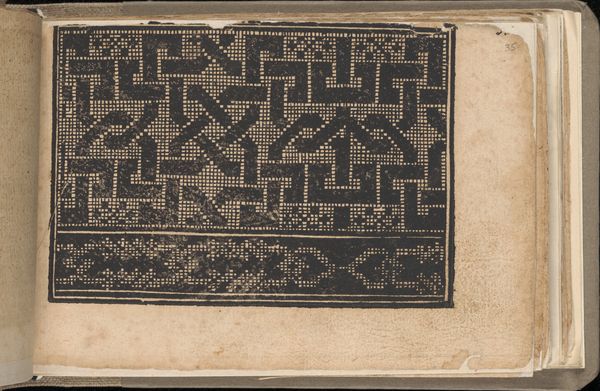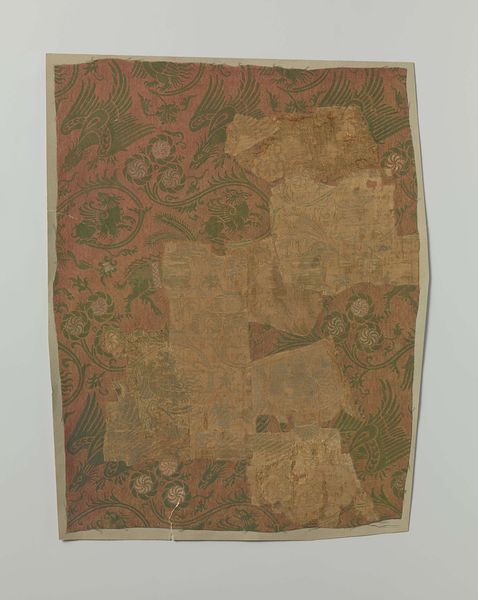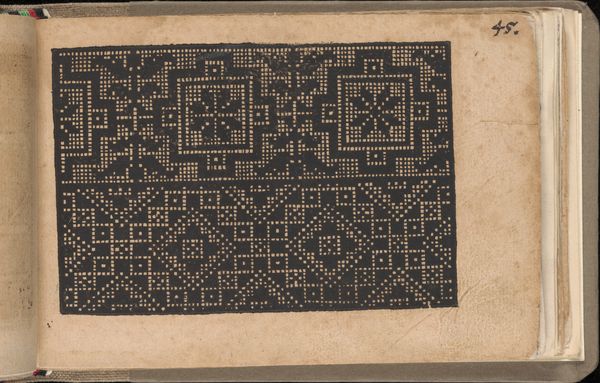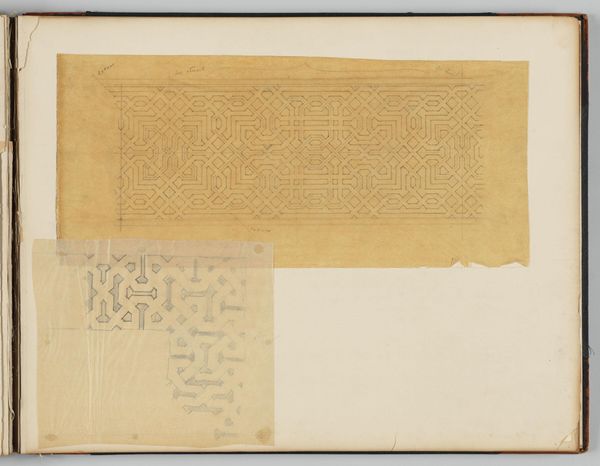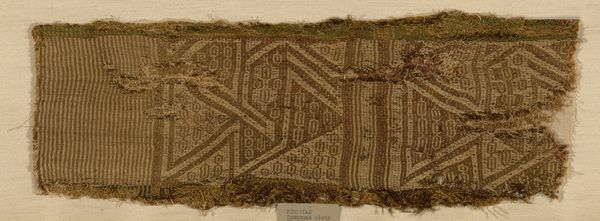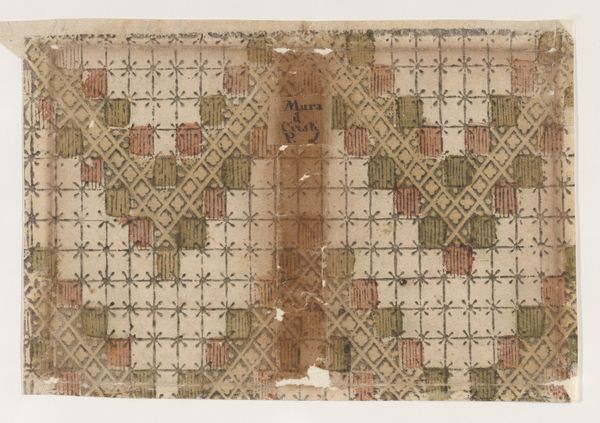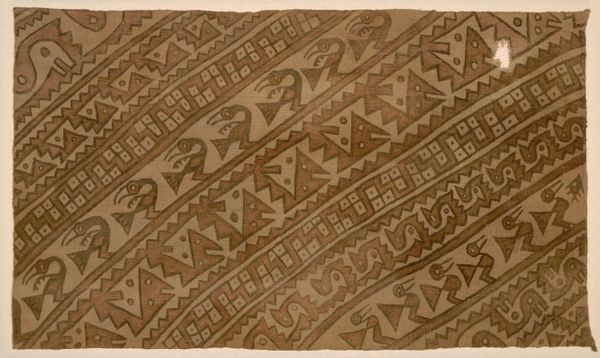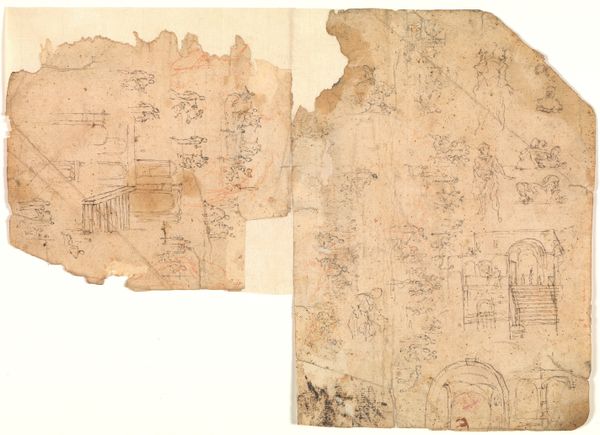
textile
#
african-art
#
textile
#
geometric pattern
#
geometric
Dimensions: 177 1/4 x 33 1/2 in. (450.22 x 85.09 cm)
Copyright: Public Domain
This ceremonial skirt was woven by a Kuba artist using raffia, and is now part of the collection at the Minneapolis Institute of Art. These skirts hold significant cultural value within Kuba society, reflecting social status, gender roles, and artistic expression. Looking closely, the intricate geometric patterns woven into the skirt create meaning through visual codes and cultural references. Originating from the Democratic Republic of Congo, these skirts are made within a society where artistic expression serves as a means of communicating history. The creation and wearing of these skirts is deeply entwined with Kuba identity. Understanding this artwork necessitates looking at the rich history and social structure of the Kuba people. It is through anthropology, historical texts, and comparative analysis of Kuba art that we can fully appreciate the layers of meaning embedded within this remarkable textile. These skirts serve as a reminder of the power of art to reflect and shape social norms.
Comments
minneapolisinstituteofart about 2 years ago
⋮
In Kuba society, the process of making textiles is as important as the finished textiles themselves. This elaborately decorated raffia skirt symbolizes concepts of cooperation, interdependency, and familial responsibilities. The embroidery of a woman’s skirt is usually a group effort, with several women within the lineage contributing one or more sections, so the work represents a wide variety of skill levels and artistic interpretations. The finished skirt was owned by a high-ranking woman of the lineage, who would wear it on ceremonial occasions, especially funerals.
Join the conversation
Join millions of artists and users on Artera today and experience the ultimate creative platform.
